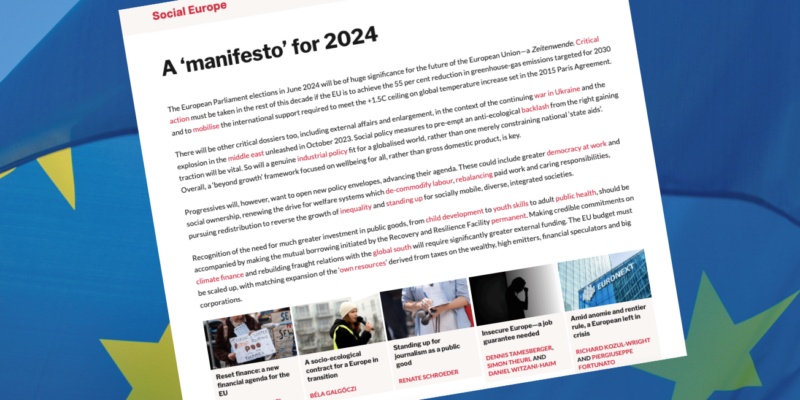Policy
European Union
CoE’s Recommendation represents a significant milestone in the fight against SLAPPs
The Coalition Against SLAPPs in Europe (CASE), of which the European Federation of Journalists (EFJ) is a member, issued a statement welcoming the adoption of the Recommendation on countering the use of SLAPPs by the Council of Europe (CoE) on 5 April 2024. Although there is still room for improvement, the Recommendation is an important step in the protection of press freedom, guaranteeing journalists a safer environment, free from fear and intimidation. The Recommendation establishes robust standards that Member States must meet in order to ensure compliance with their human rights obligations. This Recommendation could help guide EU Member States as…
EFJ calls for immediate and ambitious implementation of the European Media Freedom Act
As the final text of the European Media Freedom Act (EMFA) was formally adopted today by the European Union, the European Federation of Journalists (EFJ) calls once again on the Member States to be efficient and ambitious in implementing this crucial legislation. The final green light given to the EMFA by European governments – except Hungary – could not be more timely as the situation is worsening in several EU countries, where public service media are being used politically and weakened financially, instead of guaranteeing citizens independent, plural and quality information as their mission requires. First tests in Slovakia and…
Op-ed: Standing up for journalism as a public good
By EFJ Director Renate Schroeder, 7 March 2024 (originally published on Social Europe) It is a truism to say democracy relies on a free press. But in a sea of misinformation that is because it’s a fact. Europe’s information ecosystem is at a crossroads. Misinformation and filter bubbles, oligarchic media capture and attacks on public-service media, indeed unprecedented attacks on journalists amid their subjection to precarious working conditions—all are leading to a brain drain from the industry. This could have a devastating impact on the quality of journalism and media pluralism, already threatened by ‘click-bait’ profit-seeking and local news ‘deserts’ deemed…
Coalition calls for effective implementation as the Parliament adopts the European Media Freedom Act
The European Parliament today adopted with an overwhelming majority (464 in favour, 92 against, 65 abstentions) the European Media Freedom Act (EMFA). Media freedom and pluralism along with the rule of law have been in decline in the EU (and beyond) for many years. Where the rule of law is undermined, independent journalism is often the first to suffer. Against this background, our coalition of organisations representing journalists, media freedom and civil society groups, and public service media, congratulate the EU institutions and welcome the EMFA as an important step towards protecting and promoting media freedom and pluralism in the EU.…
EFJ Manifesto for 2024 EU elections: Stand up for journalism as a public good
The European Federation of Journalists (EFJ) today launched its Manifesto ahead of the 2024 EU Elections. With the motto “Stand up for journalism as a public good”, the EFJ and its affiliates aim to raise awareness about the need for a strong European Union, committed to working for trade union and human rights, the rule of law, media freedom and media pluralism. “The EFJ is calling upon future EU policymakers to stand up for journalism and journalists in Europe,” said EFJ President Maja Sever. “In the past years, the EU has done more than ever to create a safer and…
EFJ welcomes agreement on European Media Freedom Act
The European Federation of Journalists (EFJ) welcomes the adoption on Friday of the European Media Freedom Act (EMFA), the final version of which no longer refers to the possibility of spying on journalists on the basis of vague “national security” imperatives. This is a victory for all defenders of press freedom and democracy. Pending an in-depth analysis of the text of the agreement and the precise guarantees it puts forward to protect journalistic sources, the EFJ would like to thank the key players in the trilogue negotiations, European Commission Vice-President Vera Jourova, Spanish Culture Minister Ernest Urtasun, and MEPs Sabine…

















